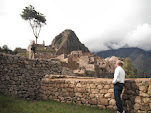Greetings! Across the vast tapestry of ancient literature and sacred scriptures, emerge two enigmatic figures who, despite being separated by millennia and vastly different cultural landscapes, share striking similarities. Enkidu, the wild man from the Epic of Gilgamesh, and John the Baptist, the fiery preacher of the New Testament, stand as compelling figures who herald change and challenge societal norms. Though their contexts and purposes diverge, their shared roles as harbingers, their connection to the natural world, and their ultimate sacrifice paint a fascinating portrait of two iconic characters.
Both figures maintain a deep connection to the natural world. Enkidu, raised by animals, embodies the untamed wilderness. His strength and ferocity are honed in the wild, making him a formidable match for Gilgamesh. John the Baptist, too, finds solace in the desert, his simple attire and austere lifestyle reflecting his immersion in the natural world. His baptism of many, including Jesus, in the Jordan River, symbolizes not only spiritual cleansing but also a merging with the primal forces of nature.
Both Enkidu and John the Baptist arrived on their respective scenes as harbingers of profound change. Enkidu, crafted from clay by the goddess Aruru, was sent to challenge Gilgamesh, the tyrannical king of Uruk. Enkidu’s emergence from the wild disrupts the established order, forcing Gilgamesh to confront his own mortality and limitations. Similarly, John the Baptist emerged from the Judean wilderness, his ascetic lifestyle and impassioned pronouncements heralding the imminent arrival of the Messiah. John called for repentance and a radical transformation of hearts and minds, preparing the way for Jesus's ministry.
Despite their transformative roles, both Enkidu and John the Baptist meet tragic ends. Enkidu, after his escapades with Gilgamesh, succumbs to an illness born of the gods. His death left Gilgamesh heartbroken and grappling with his own mortality. John the Baptist, too, faced a brutal death, beheaded at the behest of King Herod’s daughter, Salome. Yet, their deaths were not in vain. Enkidu's friendship tempered Gilgamesh's arrogance and set him on a quest for meaning. John the Baptist's martyrdom paved the way for Jesus's ministry and became a powerful symbol of unwavering faith.
Though separated by time and culture, I find it most interesting to consider the unexpected parallels between Enkidu and John the Baptist. They offer a thought-provoking lens through which to view these iconic figures. By recognizing their shared roles as harbingers, their connection to the natural world, and their ultimate sacrifice, we gain a deeper appreciation for their enduring impact on mythology and scripture. Their stories serve as a testament to the enduring power of wildness, the importance of challenging the status quo, and the legacy of those who dare to pave the way for change.
All the best,
Tom


No comments:
Post a Comment